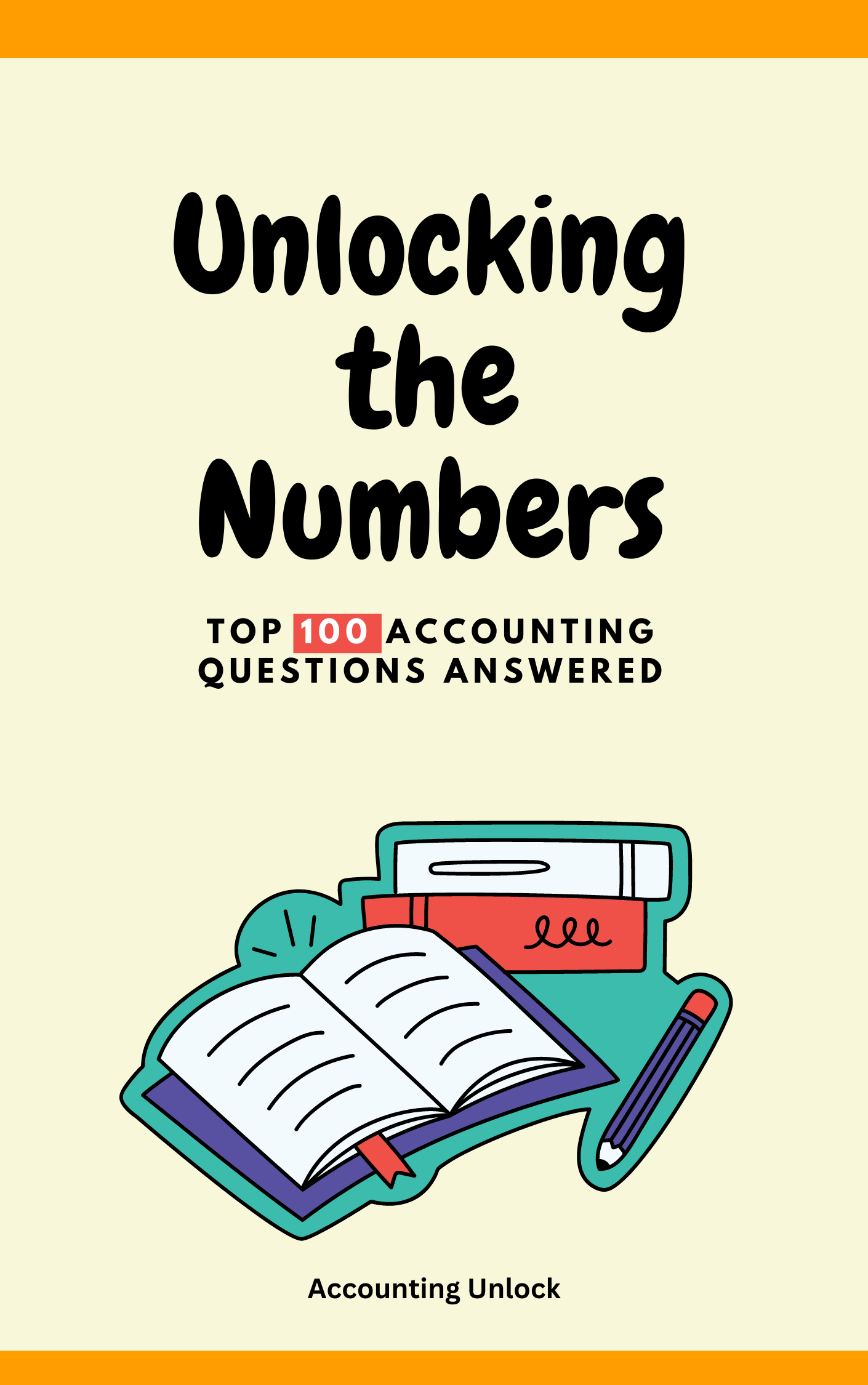Welcome, young financial enthusiasts, to a thrilling adventure into the heart of financial wisdom! Today, we embark on a journey to unravel the mysteries of accounting objectives – a powerful tool that transforms numbers into a language of empowerment.
Whether you’re dreaming of managing your own business someday or simply want to make savvy decisions with your pocket money, understanding the objectives of accounting is your key to financial success.
So, fasten your seatbelts as we delve into the exciting world where dollars meet destiny, and financial superheroes are born!
Table of Contents
1. What Are the Objectives of Accounting?
1.1 Tracking the Money Trail:
Let’s imagine your money is on a grand adventure. It goes on trips to the store, hangs out in your piggy bank, and sometimes even takes a detour for a special treat.
Now, how do you keep tabs on its exciting journey? That’s where accounting steps in! One of its main objectives is to track every twist and turn of your money trail.
Whether it’s the dollars you earn from a part-time job or the ones you spend on your favorite snacks, accounting ensures we know where every penny goes.
1.2 Making Smart Money Moves:
Picture this: You have a limited amount of money, and you want to make the most of it. Maybe you’re eyeing that new video game or planning a weekend outing with friends.
This is where the second objective of accounting comes into play – making smart money moves. By keeping a close eye on your income and expenses, accounting helps you make informed decisions.
It’s like having a money superhero guiding you to spend wisely, save for your goals, and make the most of every dollar.
Understanding these objectives is like having a treasure map for your finances. It empowers you to take control of your money, make choices that align with your goals, and set the stage for a financially successful future.
As we delve deeper into the objectives of accounting, you’ll discover how it transforms ordinary numbers into tools for financial empowerment.
Ready to decode the language of dollars? Let’s dive in!
2. The ABCs of Accounting Objectives:
2.1 Accuracy in Numbers:
Imagine you’re a detective solving a mystery, and the key to cracking the case is having accurate information. In the world of accounting, accuracy is the name of the game. The objective here is to ensure that every financial transaction is recorded with precision.
Whether it’s the money you earn from your part-time job or the allowance you receive, accounting makes sure the numbers add up correctly. Think of it as creating a reliable map where every detail is correct – a map you can trust to guide you through your financial journey.
2.2 Building Financial Reports:
Now, let’s switch gears and think about telling a story. What if you had to tell the tale of your money adventures to someone else? Accounting helps you do just that by creating financial reports.
These reports are like storybooks filled with charts, graphs, and numbers that paint a vivid picture of your financial life.
They showcase your income, your spending habits, and even how much you’ve saved. With these reports, you can tell your financial story in a way that’s clear and easy to understand.
Understanding the ABCs of accounting objectives – Accuracy in Numbers and Building Financial Reports – is like having a superhero sidekick in your financial journey. It ensures your financial information is precise and provides you with powerful tools to communicate your financial story.
So, are you ready to become a financial storyteller with the ABCs of accounting? Let’s explore further!
3. Why Does Accounting Matter to You?
3.1 Budgeting and Savings:
Let’s talk about budgeting – the superhero skill that helps you manage your money wisely. Accounting plays a crucial role in this by helping you create and stick to a budget.
Imagine you have a monthly allowance, and you want to use it for various things like games, snacks, and maybe saving for something special. Accounting steps in to help you allocate specific amounts to each category, ensuring you have enough for everything without overspending.
It’s like having a personal money planner, guiding you to make your money last and achieve your savings goals.
3.2 Planning for the Future:
Now, let’s fast-forward a bit and think about your future goals. Maybe you dream of buying a cool gadget, going on a dream vacation, or even starting a small business.
Accounting is your financial GPS, helping you plan for these exciting goals. By tracking your income, expenses, and savings, accounting enables you to see the bigger picture. It’s like having a roadmap that shows you the steps needed to reach your dreams.
Whether you’re eyeing a new gaming console or planning for college, accounting is your trusty companion in turning dreams into achievable plans.
So, why does accounting matter to you? It’s not just about numbers on a page; it’s about empowering you to take control of your financial journey. From budgeting for today’s adventures to planning for tomorrow’s dreams, accounting is the key that unlocks a world of financial possibilities.
Ready to embark on this journey of financial empowerment? Let’s continue our exploration of the why’s and how’s of accounting!
4. The Pillars of Accounting Objectives:
4.1 Transparency and Accountability:
Imagine you have a shared treasure chest with your friends, and everyone contributes to it. Now, what if you needed to keep track of who put what into the chest and who took something out? This is where transparency and accountability, the pillars of accounting, come into play.
Accounting ensures that everyone involved in financial matters can see and understand what’s happening. It’s like having a clear window into the treasure chest, making sure everyone knows who contributed, how much, and where the money is going.
This transparency helps build trust and ensures that everyone plays fair in the financial game.
4.2 Facilitating Decision-Making:
Now, let’s imagine you’re the captain of a ship, and you need to decide on the best route to reach your destination. Accounting provides the navigational tools for decision-making in the vast sea of financial choices.
By organizing and presenting financial information in reports, accounting equips you with the knowledge to make informed decisions. It’s like having a compass that points you in the right financial direction.
Whether it’s choosing between spending or saving, accounting empowers you to make decisions that align with your goals and aspirations.
Understanding the pillars of accounting objectives – Transparency and Accountability, and Facilitating Decision-Making – is like having a superpower in your financial toolkit. It ensures fairness, builds trust, and guides you in making choices that shape your financial future.
So, are you ready to become the captain of your financial ship with the pillars of accounting? Let’s set sail into the world of financial possibilities!
Key Points about Accounting Objectives:
- Tracking the Money Trail:
- Accounting helps follow the journey of money, ensuring you know where it comes from and where it goes.
- It acts as a financial detective, allowing you to make informed decisions about your money.
- Making Smart Money Moves:
- The objective is to guide you in making wise financial decisions, like budgeting and saving.
- Accounting empowers you to allocate money wisely, making the most of your resources.
- The ABCs of Accounting Objectives:
- Accuracy in Numbers: Ensures precise recording of financial transactions.
- Building Financial Reports: Creates clear and comprehensive financial stories using charts and graphs.
- Budgeting and Savings:
- Accounting is your personal money planner, helping you create budgets and allocate money for various purposes.
- It plays a crucial role in planning and achieving savings goals.
- Planning for the Future:
- Acts as a financial GPS, providing insights into income, expenses, and savings.
- Enables you to plan for future expenses, turning dreams into actionable plans.
- Transparency and Accountability:
- Transparency: Ensures everyone involved can see and understand financial transactions, building trust.
- Accountability: Records contributions and withdrawals accurately, fostering fairness in financial dealings.
- Facilitating Decision-Making:
- Organizes and presents financial information in reports, empowering you to make informed decisions.
- Acts as a financial compass, guiding choices between spending and saving based on goals.
- Applicability to Personal Finance:
- While often associated with businesses, accounting principles are applicable to personal finance.
- Individuals can use accounting to manage budgets, plan for the future, and achieve financial goals.
- Accessibility to Everyone:
- Accounting is a skill that can be learned and applied by everyone.
- It is not limited to those proficient with numbers, allowing individuals to develop financial literacy.
- Empowerment and Financial Control:
- Accounting is a tool that empowers you to take control of your financial journey.
- It transforms numbers into actionable insights, helping shape a successful financial story.
Understanding these key points about accounting objectives equips you with the knowledge to navigate the world of finance, make informed decisions, and embark on a journey of financial empowerment.
Conclusion:
As we reach the end of our journey into the fascinating world of accounting objectives, it’s time to reflect on the valuable lessons we’ve uncovered. Accounting, often seen as a magical language of numbers, is, in fact, your personal guide in the realm of finances.
We started by understanding the essence of tracking the money trail and making smart money moves. Just like a skilled detective, accounting helps you follow the footsteps of your hard-earned dollars, ensuring you make decisions that align with your goals.
The ABCs of accounting objectives, Accuracy in Numbers and Building Financial Reports, act as your trusty sidekick. They ensure that the financial story you tell is not just precise but also vivid and engaging. You’re not just crunching numbers; you’re becoming a financial storyteller.
Moving forward, we explored why accounting matters to you. It’s not merely about recording transactions; it’s about budgeting for today’s adventures and planning for tomorrow’s dreams. Accounting becomes your financial GPS, guiding you through the twists and turns of your unique journey.
The pillars of accounting objectives – Transparency and Accountability, and Facilitating Decision-Making – serve as your financial superpowers. They ensure fairness, build trust, and empower you to navigate the vast sea of financial choices with confidence.
So, as you embark on your financial adventure armed with the knowledge of accounting objectives, remember that you’re not just crunching numbers; you’re unlocking a world of financial possibilities. With each dollar, you have the power to shape your financial story, make informed decisions, and turn your dreams into reality.
Congratulations on completing this exploration into the objectives of accounting! May your financial journey be filled with wisdom, empowerment, and the thrill of turning every dollar into a chapter of success. Happy financial adventuring!
Frequently Asked Questions (FAQs) about Accounting Objectives:
1. Why do I need to track my money with accounting?
- Tracking your money with accounting is like having a roadmap for your finances. It helps you see where your money comes from, where it goes, and enables you to make smart decisions to reach your financial goals.
2. What is the ABC of accounting objectives?
- The ABCs represent Accuracy in Numbers and Building Financial Reports. Accuracy ensures precise recording of transactions, and Building Financial Reports helps in creating clear and comprehensive financial stories.
3. How does accounting help with budgeting and savings?
- Accounting plays a crucial role in budgeting by helping you allocate your money to different categories, ensuring you have enough for everything. It also guides you in saving for specific goals, turning dreams into achievable plans.
4. Can accounting help me plan for the future?
- Absolutely! Accounting acts as your financial GPS, providing insights into your income, expenses, and savings. This information helps you plan for future expenses, goals, and aspirations, turning your dreams into actionable plans.
5. What is the significance of transparency and accountability in accounting?
- Transparency ensures that everyone involved in financial matters can see and understand what’s happening, building trust. Accountability ensures that contributions and withdrawals are recorded accurately, fostering fairness in financial dealings.
6. How does accounting facilitate decision-making?
- By organizing and presenting financial information in reports, accounting equips you with the knowledge to make informed decisions. It acts as your financial compass, guiding you in choosing between spending and saving based on your goals and aspirations.
7. Is accounting only for big businesses, or can it be used in personal finance?
- Accounting is for everyone! While big businesses use it on a larger scale, individuals can apply the principles of accounting to manage personal finances, budget effectively, and plan for their financial future.
8. Can I learn accounting even if I’m not good with numbers?
- Absolutely! Accounting is about understanding and applying principles, and it’s a skill that can be developed. Start with the basics, take it step by step, and soon you’ll find yourself confidently navigating the world of numbers.
These FAQs provide a glimpse into the world of accounting objectives, addressing common questions and demystifying the language of finance.
As you dive into the realm of accounting, remember that it’s a tool for everyone, empowering you to take control of your financial journey. Happy learning!





